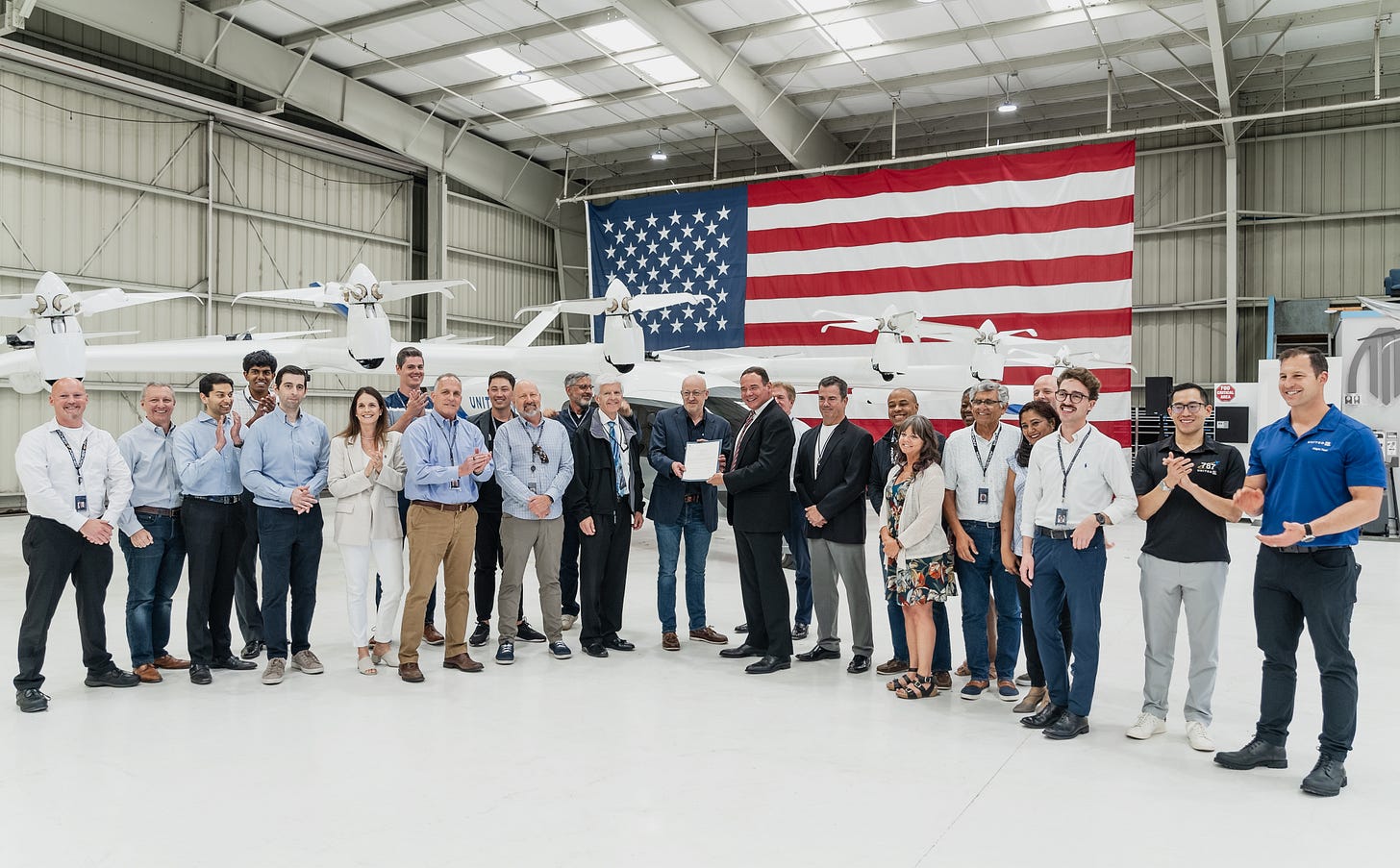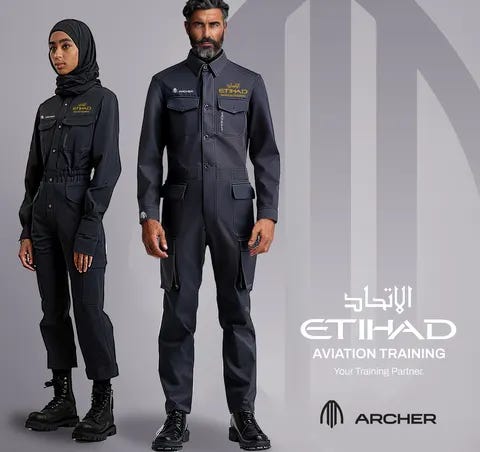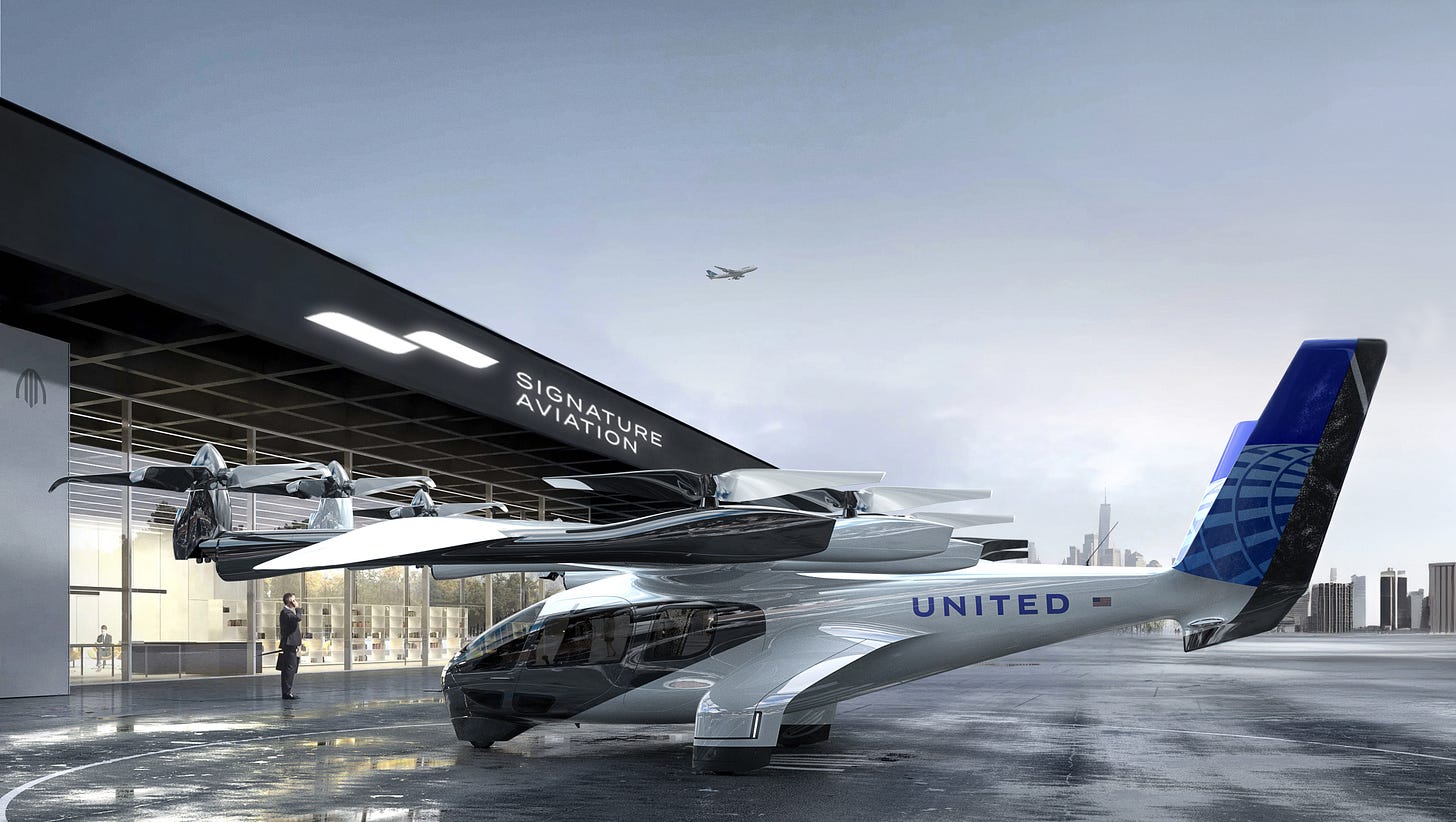New "airline" Archer Air to fly eVTOLs on behalf of United Airlines
Archer Aviation's Chief Commercial Officer Nikhil Goel on meeting the promises of the future and addressing the challenges that linger.
Archer Aviation's Chief Commercial Officer (CCO) Nikhil Goel has revealed that the company will operate electric air taxis on its partners' behalf as a standalone commercial airline called Archer Air.
Speaking at the Revolution Aero conference in London, Goel explained that this aligns with United's purchase of up to $1.5 billion worth of Archer's Midnight aircraft, which the company aims to have in service within the next two years.
Under the agreement, Archer will manufacture the Midnight aircraft, while Archer Air will operate them domestically in the United States on United's behalf. This is similar to the United Express model, where third parties currently operate smaller regional aircraft on feeder routes for the airline giant.
“United will work on the things that they're really good at, such as integration at the airports, distribution to their customers, and helping us with things like pilot training," said Goel.
The establishment of Archer Air has been made possible by the Federal Aviation Administration (FAA) granting Archer a Part 135 Carrier & Operator Certificate, signalling that the company has developed and demonstrated its adherence to the necessary policies and procedures to begin operating aircraft commercially in accordance with the FAA's stringent safety and operational standards.
Archer is one of only two eVTOL companies worldwide to receive Part 135 Certification, with Joby being the other.
UAE to be the first?
However, it may be the United Arab Emirates, rather than the United States, that witnesses the first flights of Archer's Midnight aircraft.
The company has announced plans to launch in Abu Dhabi and Dubai, collaborating with local partners such as Mubadala, Falcon Aviation, Air Chateau, Etihad, and the Abu Dhabi Investment Office. Goel remarked: "Whenever we go there, we're fortunate to meet with a number of excellencies, highnesses, leaders across the country who say, we want UAM to be here in the UAE by next year."
Archer has also formed partnerships in Korea and India. In Korea, the company is working with Kakao (the "Uber of Korea") and LG to demonstrate their technology by the end of this year or early next year. Kakao has invested in early commercialisation efforts and purchased a large number of aircraft. In India, Archer has partnered with IndiGo, the third-largest airline in the world, to commercialise in Delhi, Mumbai, and other cities with a $1 billion order of aircraft.
Questions remain around eVTOL pricing and performance
Goel told the gathering that Archer's progress has been aided by positive developments in key areas that were once considered existential challenges for the eVTOL industry, such as battery technology, manufacturing partnerships, and regulatory support: "Fast forward to today, I think we're lucky that the answer to all three of those questions has been yes."
"The batteries are here. The aircraft are flying every single day, multiple times a day. The FAA Administrator Whitaker has been very supportive, and we get to communicate with him frequently."
Despite this optimism, some commentators have raised doubts about eVTOLs and battery performance. Researchers at Oak Ridge National Laboratory (ORNL) in Tennessee found that the power and performance demands for eVTOL flight reduce battery performance and longevity, potentially posing a safety threat and increasing the cost of aircraft maintenance.
Goel said that the company is building six conforming aircraft to enable full-credit testing later this year or next, marking a significant milestone in the certification process. Additionally, when completed in September, its factory in Georgia will support the production of 650 aircraft per year.
Questions have also been raised about the affordability of electric air taxis. UAM commentator Paul Pocialik estimated that a 20-minute trip with Archer would likely cost $266, far beyond the 'price of an UberX', which eVTOL companies use as their benchmark.
Goel admitted that most of these trips may not be in the UberX price range “from day one" but suggested the company has a "pretty clear pathway to getting there within a few years of launching."
According to Goel, one part of that pathway is to address the high landing fees in places like the New York City heliports. He used the example of a real estate developer who owns a hotel with an underutilised top floor in the parking garage, suggesting that installing a charger could lead to a win-win situation for both Archer and the real estate owner.
"Nobody parks up there. That real estate is effectively worth zero. And it costs me roughly between half a million to a million dollars to put a charger up there and make it take off from any location…you don't even have to squint to be able to pay that off in a couple of years. So, does the landing fee need to be $40 or $200? No, it can be $5."
Archer reaches transition milestone
In the week leading up to the conference, Archer announced two major pieces of news.
Archer Aviation and Signature Aviation signed an MOU to electrify Signature's network of over 200 private aviation terminals, providing Archer with access to takeoff and landing sites in major U.S. cities.
The companies plan to install BETA Technologies' interoperable rapid recharging systems across Signature's network, marking a significant step towards establishing the infrastructure needed to support urban air mobility and offering passengers a sustainable and efficient transportation solution with Archer's Midnight eVTOL aircraft.
Furthermore, Archer Aviation's Midnight eVTOL aircraft successfully completed its transition flight on June 8th, flying at speeds over 100 MPH. This milestone involves the aircraft taking off vertically, transitioning to wing-borne flight, and landing vertically, and it is crucial for carrying commercially viable passenger payloads. Notably, Archer has now achieved transition with two different full-scale eVTOL aircraft.







